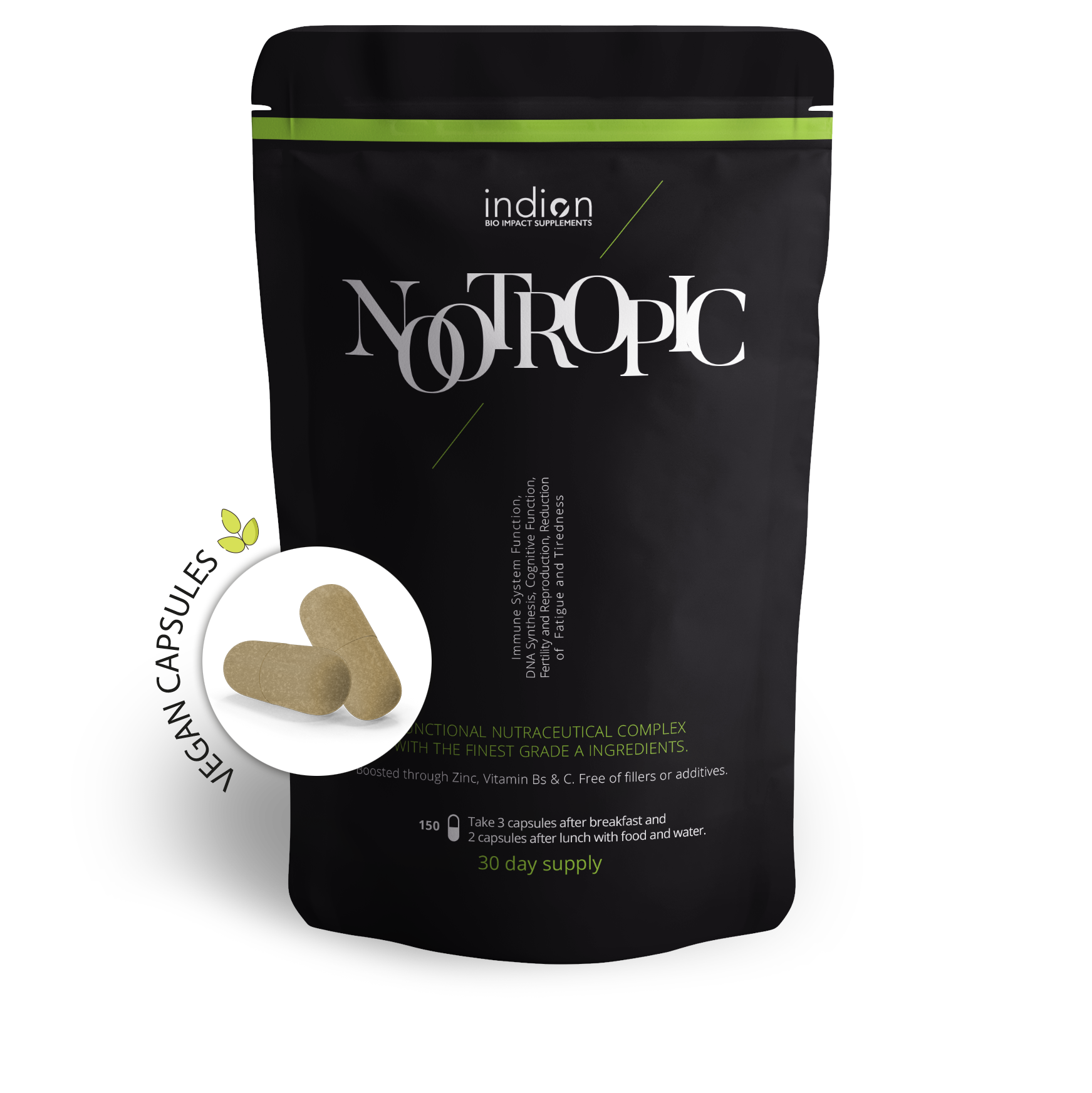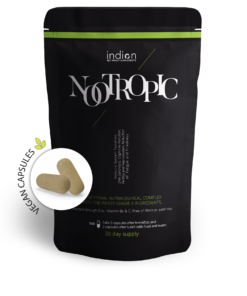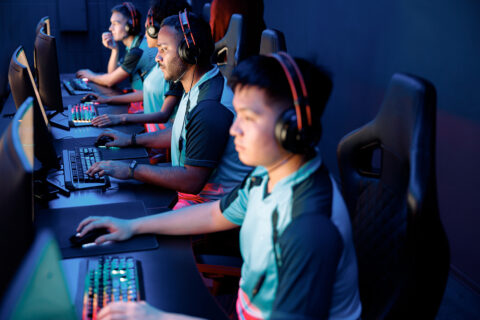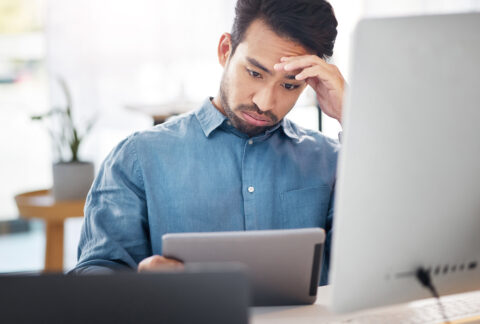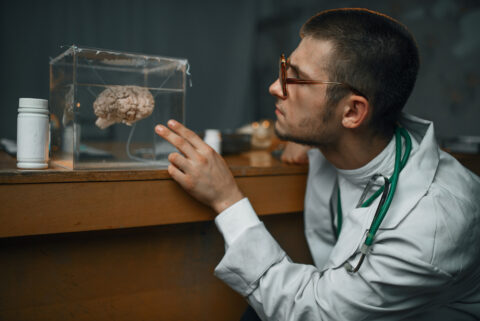Do you feel like you could use a little pick-me-up? Are you struggling with Fatigue or listlessness? If so, you may want to consider nootropics. Nootropics are supplements that can help improve your focus and energy levels. They are often used to improve cognitive function. Still, they can also be helpful for people who are recovering from an injury or dealing with chronic Fatigue. In this article, we will discuss nootropics and whether they are a good idea for people recovering from an injury or dealing with Fatigue. We will also provide examples of nootropic supplements that you may want to consider.
Now, let’s look at some research on this topic!
What are nootropics, and what do they do
Nootropics are drugs, supplements, or other substances that improve cognitive function, particularly executive functions, memory, creativity, or motivation, in healthy individuals. In other words, nootropics are substances that help you to focus and to be more productive. They have been around for a while and are becoming increasingly popular as people search for ways to improve their mental performance.
There are many types of nootropics, and they can be used for different purposes. Some people take them to improve their memory or focus. In contrast, others use them to increase their energy levels or motivation. There is a wide range of nootropics available on the market, and it is important to do your research before you choose one.
Nootropics are not for everyone and should not be used as a replacement for a healthy lifestyle. However, they may be worth considering if you are looking for a way to boost your mental performance. If you suffer from listlessness or Fatigue, nootropics may be able to help you, but before using them, consider reading the next article below.
Are nootropics good for listlessness and Fatigue?
While there is some evidence that nootropics can be helpful for conditions like Fatigue and listlessness, more research is needed to determine whether they are truly effective for these purposes. Some of the most common reasons people take nootropics include improving cognitive function, reducing anxiety and stress, and enhancing sleep quality.
Nootropics are often used to sharpen a person’s mental cognition. They give users an edge and can produce measurable results in intelligence tests.
While there are some positive aspects to nootropics, multiple experts claim that they are not always a good idea for people with depression and other mental ailments. Nootropics may increase the likelihood of exacerbating symptoms or triggering a relapse. Dextroamphetamine and modafinil are two examples of substances that can worsen depression when taken by someone already suffering from one condition.
Modafinil may appear very tempting for people who feel sluggish due to low levels of dopamine.
It is a powerful cognitive enhancer that can improve both alertness and mood. It has even been used to treat ADHD and narcolepsy. Modafinil is known to have a significant number of side effects, including insomnia,
nervousness, irritability, skin reactions, and nausea. Using modafinil when suffering from depression may make the underlying condition worse.
Dextroamphetamine is another substance that poses similar risks. It is a stimulant that improves focus and attention span while reducing Fatigue and listlessness. Dextroamphetamine also increases blood pressure and heart rate while raising body temperature above average.
While these effects can be very useful, they also pose serious risks for people who suffer from heart disease, high blood pressure, and minor strokes.
Other substances in the nootropics category also share similar risks and side effects. Ecstacy is a popular example of this, as it can increase blood pressure and heart rate while lowering body temperature. It has also been connected to anxiety disorders and depression, especially if the user engages in binge drinking. People are strongly advised not to use these substances when suffering from depression or other mental disorders.
How to get rid of listlessness
If you see your child, spouse, or even yourself acting these days listlessly, it’s time to take action! Many factors can cause a person to seem unmotivated. They may have an underlying health condition they are unaware of, such as ADHD or depression. Sometimes simply identifying the reason will be enough to spur people into action to tackle the problem effectively. But other times, finding the right option for treatment will be necessary first before any progress is made. Let’s discuss some of the major causes and what you may do about them depending on their situation.
Lack of exercise
A lack of exercise is one of the most common things that can sap a person’s energy. Physical activity helps to relieve stress and increase endorphins and other hormones in our bodies that make us feel good. Conversely, not getting enough exercise can cause our bodies to have more stress hormones, which may lead to feelings of apathy and contribute to depression. So if you notice your energy going down, start moving more! It might be a good idea to take up the hobby of running or cycling or even take a 20-minute walk after lunch every day.
Spending too much time staring at the screen
While staying connected to the outside world via your computer, TV, or phone is great, it can make you less active and more sedentary. It’s also bad for your health as much of your day is spent sitting in front of a screen. So if you’re not motivated to get up and do something physically active because you’re busy on your PC, consider switching off some time each day by going outside or taking a shower instead.
Inability to cope with stress
Stress will cause you to have an increased heart rate, caused by your fight or flight response happening more often, leading to a depleted metabolic rate. If you feel that way often, it will be your body’s natural response to avoid situations that may stress you out. So if you feel like you’re unable to cope with everyday stress, consider calming relaxation methods such as yoga, tai chi, or meditation.
Overworking
Working long hours is stressful in itself, but doing so consistently can cause burnout and weaken your immune system, making you more likely to get colds and flu. This will affect your motivation, leading to feelings of listlessness unless you take a few days off for rest or switch some of your activities to lower-impact ones like cycling or swimming instead of running, for instance.
Anxiety or depression
While anxiety and depression are not the same, they can share some of the same symptoms, such as a lack of motivation. If you constantly feel like there’s something wrong, but you can’t figure out what it is, these feelings could stem from an emotional issue that hasn’t been dealt with yet. Talking to a professional therapist may be a good way to get things off your chest and encourage you to focus again on the things that make you happy.
Lack of support systems
Sometimes we feel like being alone and doing our own thing all day. But what’s the point of doing it if nobody wants to go with you? Counting on other people who can help motivate you to keep going is important. Family and friends can be a good source of support, but sometimes you’ll need more than just them. Job support teams are becoming more popular for that reason, offering advice and helping out with organizational things like leaving on time, etc.
Feelings of low self-worth
One thing that can cause feelings of apathy is when people feel they’re unworthy or worthless in their own eyes because they’ve done something wrong in the past or see themselves as unattractive, unintelligent, etc. While there’s no denying that they did do something wrong, that doesn’t change the fact that they are a valuable person. Making up for what happened in the past is difficult, but making changes for today and the future can help rebuild self-esteem and make positive changes you’ll see reflected in your life to improve it.
If you’re feeling listless, try some of the things we discussed. Most of these things can be done by yourself, and doing so will not only help to motivate you but also bring great joy to your life in itself!
How can nootropics help with listlessness and Fatigue?
Nootropics are substances that can enhance certain aspects of brain function and performance.
They are often used therapeutically for treating people with neurodegenerative disorders, age-related cognitive decline, and other serious diseases that cause cognitive impairment. In some cases, they have been shown to help with depression and other mood disorders.
One way in which they can help is by improving the focus of our attention during tasks that require it. This should not be confused with concentration or vigilance (the ability to perceive objects or events continuously), which is a trait that nootropics do not improve very much.
All nootropics work primarily by increasing the availability of one or more neurotransmitters in our brain’s synaptic cleft. This positively impacts any neurotransmitter-mediated functions, such as memory and learning. Regarding mood disorders, nootropics that increase the levels of neurotransmitters like dopamine, serotonin, and norepinephrine in our brain can help with depression, anxiety-related disorders, and several other mood problems.
One type of substance that can be used to improve cognitive function and brain function is choline. It is important for forming new memories, which is a crucial part of learning.
Choline can also be important for improving attention spans, attentional control, and focus during tasks that require it.
What are the risks associated with taking nootropics?
Nootropics are substances that enhance cognitive function, working memory, and learning, often through mechanisms that increase the levels of brain chemicals like dopamine, acetylcholine, and noradrenaline. They improve performance in learning, memory enhancement, and healthy moods.
However, nootropics also have associated risks: they may have unwanted side effects such as altering sleep patterns (e.g., insomnia) or emotional states, causing anxiety or psychosis in some people – but not always. Furthermore, nootropics can be dangerous if combined with other drugs, e.g., Racetams should not be combined with anti-depressants as this increases the risk of headaches, sickness, Fatigue, and malaise. The exact drug interactions will depend on the individual nootropic. Hence, it’s important to communicate with a doctor before taking any nootropic.
It is also crucial to note that many of these drugs have not been approved by the FDA and therefore do not have information on the possible risks associated with their use – from small side effects to powerful adverse reactions. However, many people take these substances daily, so they are considered safe (for most people) when used properly.
There is also no evidence to suggest that they improve performance in real-world situations, like school, work, or sport. So despite their growing popularity, it is important to keep in mind what their real benefits are. It is also important to note that some nootropics can have serious side effects – the most well-known being Piracetam which can lead to increased headaches and nausea.
This should not put you off taking a nootropic, as some of these substances are very powerful in helping people with ADHD, obsessive-compulsive disorder, and depression.
What kind of physical side effects can occur from taking nootropics?
Many people take nootropics in order to improve mental performance. However, there are also some physical side effects to consider.
Nootropics such as modafinil and phenylpiracetam can cause several side effects on physical health. These include:
- Headaches, dizziness
- Insomnia, lack of sleep regulation (e.g., difficulty sleeping if taken in the morning)
- Increased heart rate, blood pressure, and body temperature; occasional chest pain; occasional nausea and vomiting
- Loss of appetite or heightened hunger
- Diarrhea or constipation
- Skin problems (e.g., itching, rash, eczema)
- Hair loss/alopecia etc.
NOOTROPIC BLEND
Mental peak performance on demand
The NOOTROPIC BLEND is a complex that helps you to get "in the zone", by boosting concentration, attentiveness, and responsiveness through the utilization of some of the most powerful nootropic ingredients available.
- Mind booster for more creativity
- Promotes concentration and focus
- For sustained performance
- Antioxidants protect the brain
- 2 capsules daily, 30 minutes before work, competition, exam or training
Do nootropics help with depression?
Nootropics are substances that can help increase intelligence, memory, and focus. Many nootropics are produced naturally within the human body and pose no danger to users.
The article examines the effects of nootropic use on depression and some negative side effects like headaches, dehydration, and headaches. It also discusses if there is any evidence to support the benefits of taking them to lower symptoms of depression. The conclusion states that while more research needs to be conducted before fully understanding their effectiveness in treating depression, they may be worth trying out on a trial-and-error basis.
“For example, research has indicated that the availability of DHA in the brain is higher than normal in people with depression. In other words, there’s some evidence that DHA supplements might be helpful.” “It’s important to remember, however, that nootropics are not for everyone and certainly not for everyone all of the time.” “They can cause digestive problems, headaches, and high blood pressure when taken in large amounts. The best way to use them is to experiment with combinations and find what works best. This way, you’ll be able to get
the most out of them and avoid any potential side effects.” “There are some other ways that nootropics can help with depression. For example, a green tea extract called L-theanine has been
shown to block the production of dopamine in the brain.” “As it turns out, increased dopamine levels have been linked to depression. So this could be another reason the supplement works so well in treating depression.”
Should you take nootropics if you’re experiencing listlessness and Fatigue
Nootropics are substances that positively impact cognitive performance and could be an option for people who experience listlessness and Fatigue. Nootropics can boost concentration, memory clarity, and focus in some individuals. There are many types of nootropics like herbal remedies, amphetamines, smart drugs, and prescription medications that a doctor can prescribe to treat ADHD or narcolepsy.
The question is should you take nootropics if you’re experiencing listlessness and Fatigue? The answer is yes. Take enough caffeine as needed to keep your energy levels up throughout the day, or add some green tea to your diet for a natural source of caffeine. If that’s not enough, you can take a supplement like Adderall, which will help with focus and concentration. If your listlessness and Fatigue are due to the overuse of stimulants, it may be time to take a break from them.
Secondly, consider taking medicinal herbs such as Feverfew, Rhodiola Rosea, or Turmeric. These are a few of many herbs that have been used for centuries, and their benefits have been deemed effective after years of use. However, they are not without side effects, so consult your doctor before adding herbal supplements to your diet.
Lastly, you can also consider taking a nootropic supplement. Nootropics are neuroenhancers that enhance memory and other cognitive functions like focus, concentration, and learning. They have the potential to improve your cognitive performance safely, but they should be taken with caution.
They can cause mild side effects such as headaches and dizziness. If you’re interested in trying an effective nootropic, check out this list of this recommended tips below!
What are some recommended nootropics for listlessness and Fatigue include:
Nootropic Blend
Nootropic Blend is a blend of herbs that can help you focus, concentrate and be less stressed.
Nootropic blends are often also called brain boosters or nootropic supplements. Some even call them “smart drugs.” You’re probably thinking, “do I want to put chemicals in my body?” or
“it sounds too good to be true.” It’s not too good to be true; it’s just science!
The main reason for introducing this type of supplement due to its potential for improving memory and concentration capabilities. This product has a special formula that helps people with meditation and memory recall problems. People with ADHD are some of the many types of people who could benefit from this type of supplementation.
The ingredients are all natural and are derived from herbal plants. Simply put, Nootropic Blend helps increase your brain power to help you achieve your goals. Use this nootropic supplement for memory, focus, and concentration.
Many people develop the nasty, negative habit of procrastination because they lack the motivation to stay on task. By taking Nootropic Blend, you may be able to be a more productive person who can accomplish much more in a given day than you were able to before you started taking it. Your decreased stress levels will also make it easier for you to stay focused on whatever you do throughout the day.
It is well known that many people use meditation to relax and lessen stress. Those who tend to meditate often notice that they can calm their mind and focus better after doing so for a few minutes each day. People find it easier to concentrate on things when they feel more grounded and relaxed. Nootropic Blend can be used in conjunction with your daily meditation routine to help you improve your concentration and relaxation techniques so that you can set yourself up for success whenever possible.
As we grow older, our memory usually worsens (as most people do). Nootropic Blend is an excellent supplement for people looking to improve their memory. The main ingredients in this supplement are found in nature and can be acquired from almost any herbal plant.
The ingredients in Nootropic Blend are easily obtainable without needing a prescription or any visits to a doctor. This product contains no pharmaceuticals or substances that would harm your body. Some people think it will increase their heart rate, but it will not.
If you’re having trouble remembering things, consider taking Nootropic Blend when you first wake up and just before bed each night. This can help improve your memory over time, so don’t worry if it doesn’t work right away. The benefits are usually cumulative. Always remember that the more you use this product, the more effective it will become over time.
Nootropic Blend is available in 100% natural and organic extracts with an A-Grade certificate of quality. It contains a total of 18 herbs and plant extracts along with a few other ingredients that confer nootropic properties upon the ingredients used in this supplement, such as Bacopa, Monnieri, Gingko Biloba, and Panax Ginseng, Caffeine Anhydrous, L-Theanine, Bacopa Monnieri Extract, Niacinamide and much more.
You can buy Nootropic Blend here: https://www.indion-supplements.com/en/shop/nutritional-supplements/nootropic-blend/
- Rhodiola Rosea: This is a herb that has been used for centuries in traditional medicine. It is thought to help improve energy levels and focus.
- Ashwagandha: This herb has been used in Ayurvedic medicine for centuries. It is thought to help improve energy levels, focus, and stress levels.
- Ginkgo biloba is a herb used for centuries in traditional medicine. It is thought to help improve memory, focus, and energy levels
Where can you find more information about nootropics
INDION was originally made by and for professional Athletes. We’ve developed the most advanced blends of extremely powerful micronutrients, medicinal mushrooms, and plants, with a substantially stronger and longer-lasting effect on recovery and energy supply for both body and mind.
The daily goal is to restore 100% of your original performance level. But we go an important step further. We completely rebuild your energy system for your next higher performance levels.
Through comprehensive regeneration of every cell in your body. And by progressive support in the performance peaks of the most important moments in your life. Check here to get a nootropics blend.
CONCLUSION
While nootropics may boost you in the short term, they are not a cure for listlessness and fatigue. In some cases, they may even make these conditions worse. So if you’re struggling with listlessness and Fatigue, talk to your doctor before taking any nootropics. They can help you find the cause of your symptoms and develop a treatment plan to help you feel better.
If you’re interested in learning more about nootropics, there are a few resources that can help.
Check out the links below for more information.
Nutritional supplements
€59,90
Das könnte dich auch interessieren:
Nootropic Blend
Nootropics for Motivation
Ever felt like you’re stuck in a rut, unable to muster the energy or motivation [...]
Nootropic Blend
Nootropic Blend: best focus supplement for gaming
Discover the best nootropic blend for gaming! Our article explores the benefits, ingredients and factors [...]
Nootropic Blend
Can Smart Drugs Improve Cognitive Function?
This article explores the potential benefits and drawbacks of using smart drugs for cognitive enhancement. [...]
Nootropic Blend
Neuroenhancement: brain doping?
Many people are looking for ways to increase their cognitive abilities and reach their full [...]
Nootropic Blend
Combat lack of concentration
Discover now the natural formula for more focus and productivity in everyday life. Increase concentration [...]
Nootropic Blend
Clearing the Brain Fog: How Nootropics can Enhance Cognitive Function and Boost Productivity
Discover how nootropics can help you tackle brain fog. Learn about the best types of [...]
Nootropic Blend
Navigating the World of Brain Boosting Nootropics: From Racetams to Rhodiola
Unlock your cognitive potential with brain-boosting nootropics. Learn about different types, benefits, and safe use [...]
Nootropic Blend
How ashwagandha effect muscles
Discover the effects of ashwagandha on muscle health. Learn how this adaptogenic herb can enhance [...]
